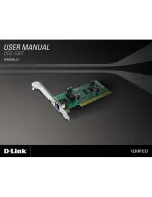Summary of Contents for MegaRAID 320
Page 1: ...User s Guide reliability English 2 MegaRAID 320 Storage Adapters ...
Page 4: ...iv Copyright 2003 by LSI Logic Corporation All rights reserved ...
Page 10: ...x Preface Copyright 2003 by LSI Logic Corporation All rights reserved ...
Page 14: ...xiv Copyright 2003 by LSI Logic Corporation All rights reserved ...
Page 16: ...xvi Copyright 2003 by LSI Logic Corporation All rights reserved ...



































